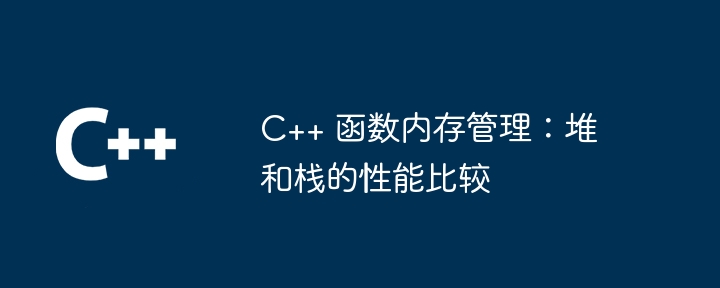是的,c++++ 中存在通用函数指针。具体步骤如下:声明通用函数指针:void* genericfuncptr;将函数强制转换为 void 类型的指针:genericfuncptr = reinterpret_cast(&myfunc);使用强制转换将其转换为函数指针类型:int (*calledfunc)(int) = reinterpret_cast(&genericfuncptr);使用函数指针调用函数:calledfunc(5);

C++ 函数指针:使用通用函数指针
简介
函数指针是一种强大的 C++ 特性,它允许您将函数作为普通数据来处理。通用函数指针是一种特殊的函数指针,可以指向具有任何签名(即参数和返回值类型)的函数。
声明通用函数指针
要声明一个通用函数指针,请使用 void* 数据类型:
void* genericFuncPtr;将函数赋值给通用函数指针
要将函数赋值给通用函数指针,请将函数强制转换为 void*:
genericFuncPtr = reinterpret_cast<void*>(myFunc);在这里,myFunc 是要分配的函数。
从通用函数指针调用函数
要从通用函数指针调用函数,请使用强制转换将其转换为函数指针类型:
int (*calledFunc)(int) = reinterpret_cast<int (*)(int)>(genericFuncPtr);
int result = calledFunc(5);在这里,calledFunc 是使用通用函数指针创建的函数指针,它指向与 myFunc 相同的函数。
实例
以下是一个使用通用函数指针的示例:
#include <iostream>
#include <functional>
using namespace std;
void print_value(int value) {
cout << "Value: " << value << endl;
}
void print_string(string str) {
cout << "String: " << str << endl;
}
int main() {
// 创建通用函数指针
void* genericFuncPtr;
// 分配要调用的函数
genericFuncPtr = reinterpret_cast<void*>(print_value);
// 使用强制转换为函数指针类型
int (*funcPtr)(int) = reinterpret_cast<int (*)(int)>(genericFuncPtr);
// 使用函数指针调用函数
funcPtr(5);
// 再次分配通用函数指针,指向另一个函数
genericFuncPtr = reinterpret_cast<void*>(print_string);
// 更新函数指针类型
funcPtr = reinterpret_cast<void (*)(string)>(genericFuncPtr);
// 调用函数
funcPtr("Hello, world!");
return 0;
}输出:
Value: 5
String: Hello, world!以上就是C++ 函数指针:通用函数指针的详细内容,更多请关注知识资源分享宝库其它相关文章!







发表评论:
◎欢迎参与讨论,请在这里发表您的看法、交流您的观点。